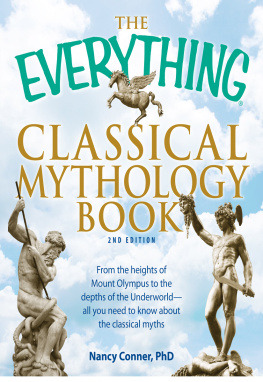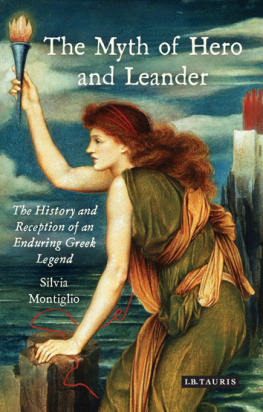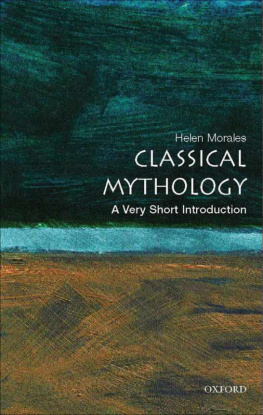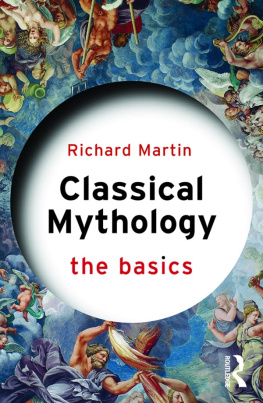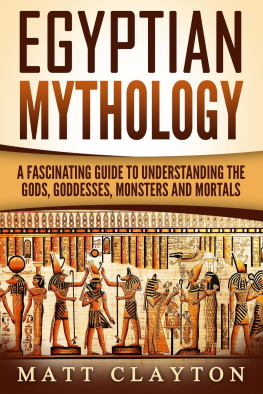Abydos. A city of Asia opposite Sestos in Europe. It is famous for the loves of Hero and Leander, and for the bridge of boats which Xerxes built there across the Hellespont. Leander was in the habit of swimming across the Hellespont to see Hero, till at length, on a stormy night, he was drowned.
Abydos. A town of Egypt, where was the famous temple of Osiris.
Academia. A place surrounded with trees, near Athens, belonging to Academus, from whom the name is derived. Here Plato opened his school of philosophy, and from this every place sacred to learning has ever since been called Academia.
Achates. A friend of neas, whose fidelity was so exemplary that Fidus Achates has become a proverb.
Achelous. The son of Oceanus and Terra, or Tethys, god of the river of the same name in Epirus. As one of the numerous suitors of Dejanira, he entered the lists against Hercules, and being inferior, changed himself into a serpent, and afterwards into an ox. Hercules broke off one of his horns and defeated him, after which, according to some, he was changed into a river.
Acheron. One of the rivers of hell; often used to signify hell itself.
Achilles, the son of Peleus and Thetis, was the bravest of all the Greeks in the Trojan war. During his infancy, Thetis plunged him in the Styx, thus making every part of his body invulnerable except the heel by which she held him. To prevent him from going to the Trojan war, Thetis sent him privately to the court of Lycomedes, where he was disguised in a female dress. As Troy could not be taken without his aid, Ulysses went to the court of Lycomedes in the habit of a merchant, and exposed jewels and arms for sale. Achilles, choosing the arms, discovered his sex, and went to the war. Vulcan made him a strong suit of armor, which was proof against all weapons. He was deprived by Agamemnon of his favorite Briseis, and for this affront he would not appear on the field till the death of Patroclus impelled him to vengeance. He slew Hector, who had killed Patroclus, and tying his corpse to his war-car, dragged it three times round Troy. He is said to have been killed by Paris, who inflicted a mortal wound in his vulnerable heel with an arrow.
Acis. A shepherd of Sicily, son of Faunus and the nymph Simthis. Galatea passionately loved him, upon which his rival, Polyphemus, crushed him to death with a piece of broken rock. The gods changed Acis into a stream, which rises from Mount Etna.
Acton. A famous huntsman, son of Aristus and Autonoe, daughter of Cadmus. He saw Diana and her attendants bathing, for which he was changed into a stag and devoured by his own dogs.
Actium. A town and promontory of Epirus, famous for the naval victory which Augustus obtained over Antony and Cleopatra, B. C. 31.
Ades or Hades. The God of hell amongst the Greeks; the same as the Pluto of the Latins. The word is often used for hell itself by the ancient poets.
Adherbal. Son of Micipsa, and grandson of Masinissa, was besieged at Cirta, and put to death by Jugurtha, after vainly imploring the aid of Rome, B. C. 112.
Admetus. Son of Pheres and Clymene, king of Pher in Thessaly. Apollo, when banished from heaven, is said to have tended his flocks for nine years.
Adonis, son of Cinyras and Myrrha, was the favorite of Venus. He was fond of hunting, and was often cautioned not to hunt wild beasts. This advice he slighted, and at last was mortally wounded by a wild boar. Venus changed him into the flower anemone. Proserpine is said to have restored him to life, on condition that he should spend six months of the year with her, and the rest of the year with Venus. This implies the alternate return of summer and winter.
Adrastus, son of Talaus and Lysimache, was king of Argos. Polynices, being banished from Thebes by his brother Eteocles, fled to Argos, where he married Argia, daughter of Adrastus. The king assisted his son-in-law, and marched against Thebes with an army. He was defeated with great slaughter, and fled to Athens, where Theseus gave him assistance, and was victorious. Adrastus died from grief, occasioned by the death of his son gialeus.
Adrianus. A famous emperor of Rome. He is represented as an active, learned, warlike, and austere general. He came to Britain, where he built a wall between the modern towns of Carlisle and Newcastle-on-Tyne, to protect the Britons from the incursions of the Caledonians.
diles. Roman magistrates, who had the charge of all buildings, baths, and aqueducts, and examined weights and measures. The office of an dile was honorable, and the primary step to a more distinguished position in the State.
geus. King of Athens, son of Pandion. Being desirous of having children, he went to consult the oracle, and on his return stopped at the court of Pittheus, king of Trzene, who gave him his daughter thra in marriage. He directed her, if she had a son, to send him to Athens as soon as he could lift a stone under which he had concealed his sword. thra became mother of Theseus, whom she sent to Athens with his fathers sword, geus being at that time living with Medea, the divorced wife of Jason. When Theseus came to Athens, Medea attempted to poison him, but he escaped; and upon showing geus the sword, discovered himself to be his son. When Theseus returned from Crete, after the death of the Minotaur, he omitted to hoist up white sails, as a signal of success, and at sight of black sails, geus, concluding that his son was dead, threw himself into the sea, which, as some suppose, has since been called the gean sea. geus died B. C. 1235.
gis. The shield of Jupiter. He gave it to Pallas, who placed Medusas head on it, which turned into stones all those who gazed at it.
gyptus, son of Belus, and brother to Danaus, gave his fifty sons in marriage to the fifty daughters of his brother. Danaus, who had established himself at Argos, and was jealous of his brother, obliged all his daughters to murder their husbands on the first night of their nuptials. This was done, Hypermnestra alone sparing her husband Lynceus. gyptus himself was killed by his niece Polyxena.
lianus Claudius. A Roman sophist of Prneste in the reign of Adrian. He taught rhetoric at Rome. He wrote treatises on animals in seventeen books, and on various other subjects in fourteen books. lian died at the age of sixty, A. D. 140.


